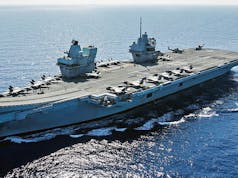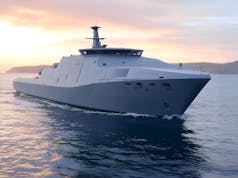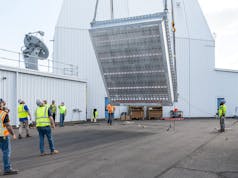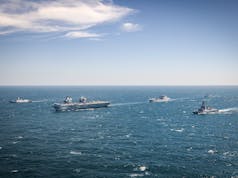Dstl say it will be participating in Autonomous Warrior 18, an exercise being run by the Royal Australian Navy and DST Group which builds on the success of the UK’s Unmanned Warrior in 2016.
The Defence Science and Technology Laboratory (Dstl) is an executive agency of the Ministry of Defence. Its stated purpose is “to maximise the impact of science and technology for the defence and security of the UK”.
Scientists, military and industry representatives from Australia, the UK, the USA, New Zealand and Canada, have come together to address The Technical Co-operation Partnership (TTCP) Autonomy Strategic Challenge, and will be demonstrating the Command and Control of a mixed fleet of unmanned systems covering air, ground, sea surface and underwater vehicles. The aim will be to use the unmanned systems to conduct military and constabulary operations, such as: arms smuggling; mine countermeasures; wide area situation awareness and base protection.
The organisation say:
“If unmanned systems are to be adopted in the numbers that many anticipate, it will be necessary to change the way they operate. Current systems tend to require at least one person to control them via a bespoke control station, therefore requiring ever-increasing resource.
The Research Programme is looking to develop and understand how to establish appropriate higher-level Command and Control of multiple systems, with digital messaging and autonomous unmanned vehicle behaviours, thereby demonstrating a transition from the current operation of unmanned systems.”
Ian Campbell, Technical Partner for MAST, said:
“The MAST project is developing an intelligent unmanned surface vehicle (USV) system to understand how these potentially disruptive systems may be best exploited and identify new tactics, techniques and procedures.
A key part of the project now is to offer the system as a testbed to allow military users, other government departments, industry and academia to test and evaluate technologies and the use of USV systems in a real-world context.”
Dstl’s Maritime Autonomy Surface Tested (MAST) is a unique UK-designed-and-built vessel capable of reaching high speeds while navigating around the oceans. Various levels of automation can be utilised, from basic remote control up to autonomous route planning and navigation. It is used to test and evaluate new technologies and all aspects of Unmanned Service Vehicle (USV) operation.













Unmanned vessels ought to be required to fly a flag to identify them as such to other vessels, so that they are treated accordingly. I’d recommend the letter R in the International code of signals, as this is distinctive and currently does not have a meaning when flown on its own.
How boring.
Only issue with these autonomous machines: today they’re on a military exercise. Tomorrow they go back in time to try to kill Sarah Connor!
On the subject of unmanned platforms downunder, but in this case of the airborne variety, the RAAF has announced last week it is acquiring between 12 and 16 Predator UAVs.
Variant has not been announced but either MQ-9A Reaper or the Type-Certifiable Predator B (SkyGuardian in RAF service).
RAAF crews have been training and operating on exchange with USAF operational Reaper units at Creech AFB and Holloman AFB in the US since February 2015 so introduction to service should be smooth transition.
We should really order another 10 at least.